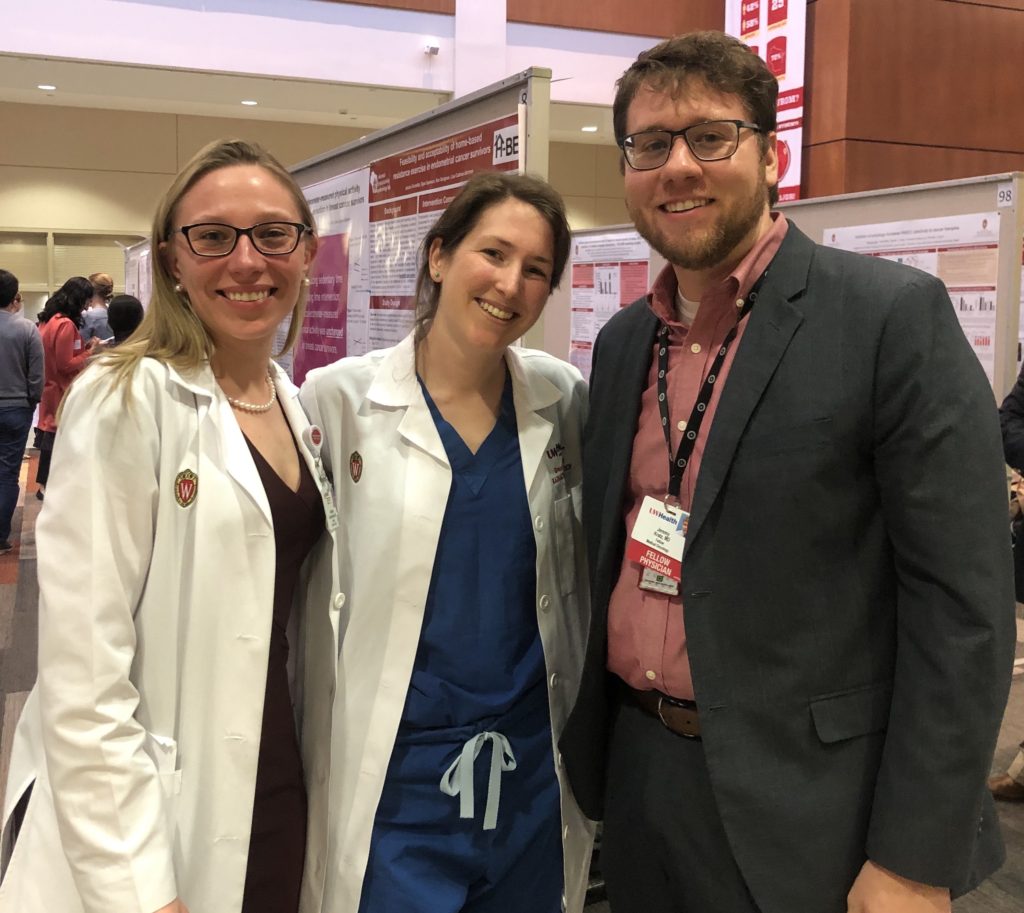
UW Radiation Oncology Residents Drs. Grace Blitzer and Aleksandra Kuczmarska-Haas received first and third place awards, respectively, for their presentations at the 2020 UW Carbone Cancer Center Research Retreat.
Dr. Blitzer presented on her Radiological Society of North America (RSNA) Resident Research Grant project on the use of stem cell therapy for radiation-induced xerostomia, or dry mouth, in head and neck cancer (HNC) patients.
Dry mouth is one of the most common toxicities among patients who undergo radiation therapy for HNC. It can occur when radiation damages salivary glands and can lead to dental problems and difficulty swallowing and speaking, among other complications.
Dr. Blitzer said she and her colleagues are “well on our way” to generating enough preliminary data for an FDA Investigational New Drug application and a phase I clinical trial for the use of mesenchymal stem cells to improve salivary function in HNC patients. They have demonstrated that the stem cells are able to expand and produce the factors that may improve salivary function. They have also established clinical trial endpoints that will be assessed through salivary gland ultrasounds, saliva analysis, and quality-of-life surveys.
Dr. Blitzer thanked Dr. Randy Kimple, associate professor in the Department of Human Oncology, for his support. “Getting to work with Randy has been really wonderful,” she says. “He’s a great mentor. He pushes you to apply for grants you didn’t think you could get. I’ve been very fortunate.”
Dr. Kuczmarska-Haas presented the results of the first prospective trial of real-time MRI-guided radiotherapy (MRgRT) for lumpectomy cavity boost in patients undergoing treatment for breast cancer and ductal carcinoma in situ.
Kuczmarska-Haas and her colleagues found that MRgRT lumpectomy cavity boost treatment is feasible and well tolerated. Patients in this trial had low rates of acute toxicity and excellent local control, progression-free survival and overall survival. In addition, lumpectomy cavity motion was minimal during treatment.
Based on these results, Dr. Bethany Anderson, DHO associate professor, developed a protocol for an MRI-guided three-fraction stereotactic body radiation therapy treatment that will use smaller margins. Enrollment will start within the next few weeks. The goal of this trial is to reduce toxicity without compromising local control and survival. “These women with early-stage breast cancers live a long time, so it’s important to find ways to minimize toxicity,” Kuczmarska-Haas says.
Congratulations, Drs. Blitzer and Kuczmarska-Haas!